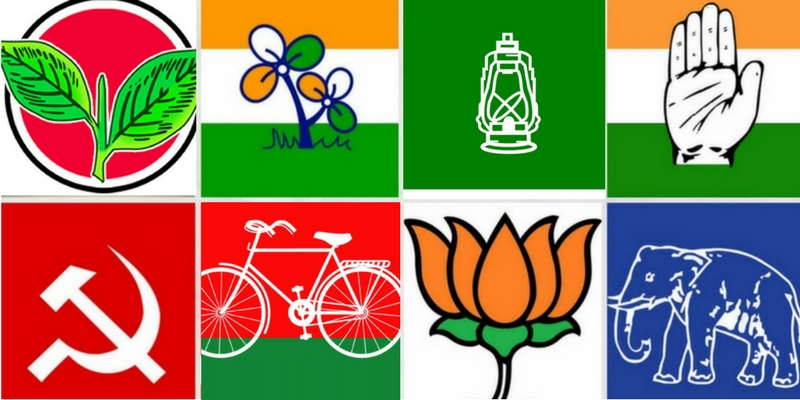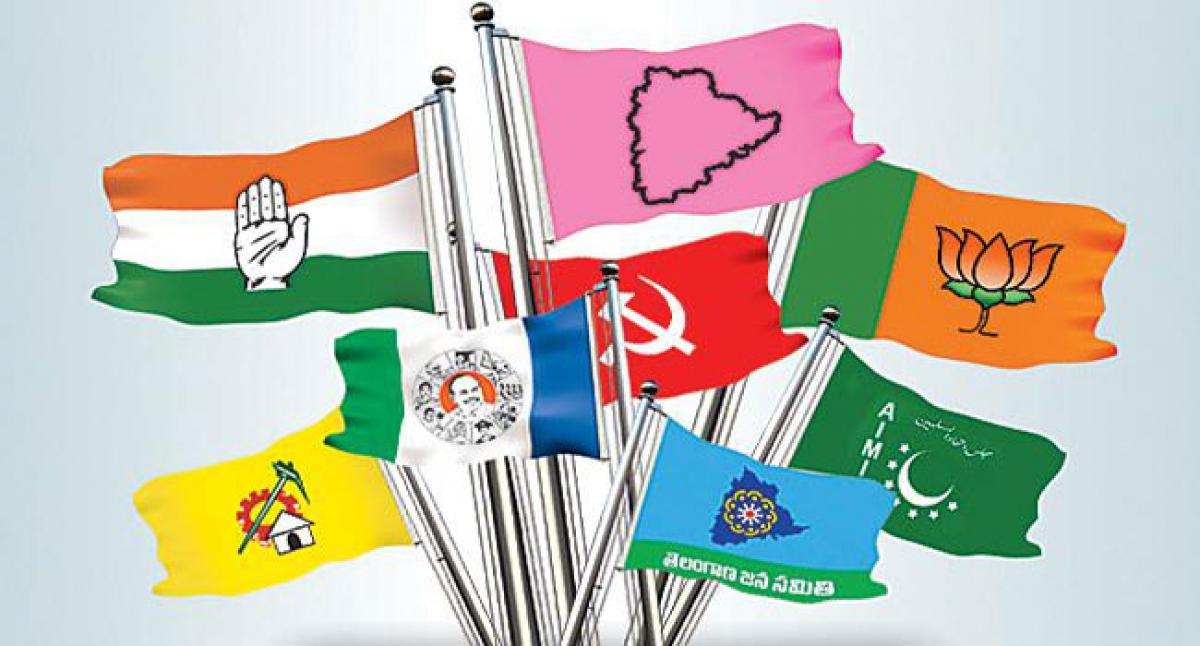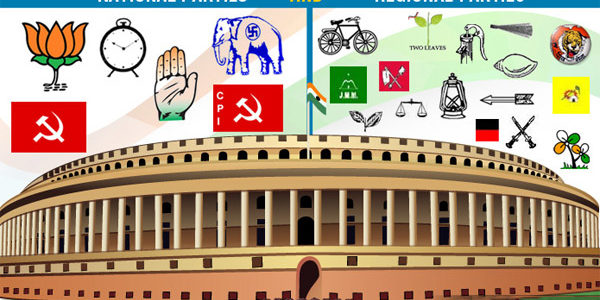Procedural democracy refers to the practice of universal adult franchise, periodic elections, and secret ballot voting, whereas substantive democracy refers to the internal democratic functioning of parties ostensibly representing the people.
The lack of intra-party democracy in candidate selection and party elections is at the root of one of the most pressing issues confronting Indian politics today.
Need for Democracy in Political Parties :-

- Representation: Political parties have become closed authoritarian entities as a result of the absence of intra-party democracy. This has a negative influence on all citizens’ fundamental right to equal political participation and election contestation.
- Less factionalism: A leader with deep roots in the community would not be marginalised. There will be less factionalism and party fragmentation as a result of this. After leaving the Indian National Congress, Sharad Pawar founded the Nationalist Congress Party (NCP), while Mamata Banerjee founded the All India Trinamool Congress (INC).
- Transparency: Proper ticket allocation and candidate selection will be enabled by a transparent party organisation with transparent processes. The choice would not be based on the whims of a few prominent party leaders, but rather on the wishes of the whole party.
- Accountability: A democratic party will be held responsible to its members because, if they do not improve, they will lose elections in the following cycle.
- Decentralizing power: Every political party has state and local body units, and elections at each level will allow power centres to emerge at various levels. This will allow for decentralisation of authority and decision-making at the grassroots level.
- Political criminalization: Because there is no well-defined method for distributing tickets to candidates prior to elections, tickets are distributed based on a hazy sense of winnability. As a result, there is now an added issue of candidates with criminal records running for office.
Reasons for Democracy Deficit :-

- Politics of dynasty: The lack of intra-party democracy has aided the rise of nepotism in political parties. Senior party officials are fielding their relatives in elections, putting in place succession plans for “family” areas.
- Centralised structure of Political Parties: The centralised method of running of political parties, as well as the strict anti-defection statute of 1985, deters party lawmakers from voting in national and state legislatures based on their personal preferences.
- Lack of Legislation: In India, there is currently no specific provision for internal democratic control of political parties, and the sole regulating law is Section 29A of the Representation of the Peoples’ Act, 1951, which requires political parties to register with the Election Commission of India (ECI).
- In the lack of any penalties, the ECI’s ability to compel parties to undertake regular internal elections for office bearers and candidate selection is jeopardised.
- Personality cult: People have a proclivity for hero worship, and it is not uncommon for a leader to seize control of the party and establish his own clique, thereby terminating any kinds of intra-party democracy. For example, Mao Zedong’s takeover of the People’s Republic of China; Donald Trump’s takeover of the Republican Party of the United States.
- Easy to rig internal elections: Existing repositories of power have a proven ability to rig internal institutional processes in order to consolidate power and maintain the status quo.
Recommendations :-
- By the Law Commission: The Law Commission of India’s 170th report on electoral reform included an entire chapter on the importance of enacting legislation governing internal party democracy.
- It was stated that a political party that does not follow democratic norms in its internal operations cannot be expected to do so in the country’s government.
- NCRWC Report: According to the National Commission for the Review of the Working of the Constitution, there should be a complete law governing the registration and operation of political parties and coalitions in India.
- 2nd ARC Report: According to the Administrative Reforms Commission’s (ARC) 2008 Ethics and Governance Report, corruption is produced by over-centralisation, since the greater the distance between authority and accountability, the more distant power is exercised from the people.
Way forward :-

- Elections Compulsory Law: It is the responsibility of the political party to take adequate efforts to guarantee that elections are held at all levels. In the presence of observers chosen by the ECI, the political party shall hold elections at the national and four state levels.
- Amending the Anti-Defection Act of 1985: The Anti-Defection Act of 1985 mandates party lawmakers to follow the party whip, which is determined by the highest party leadership’s diktats. Promoting intra-party disagreement is one strategy to democratise political parties.
- · The anti-defection statute could only be used to disqualify members who vote against their party whip during major events like no-confidence votes.
- Reservation :Reservations are available for ladies and members of the underprivileged population, including minorities.
- Financial transparency/audit: All political parties must be required to submit their spending statements to the ECI within the appropriate time frame. Political parties who fail to submit on time or in the appropriate format should face severe consequences.
- The ECI shall have the authority to investigate claims of non-compliance with any of the clauses requiring elections.
- Penalties for non-compliance: The ECI should have the right to deregister a political party until it holds free and fair elections.
Conclusion :-
Politics is inseparable from political parties as they are the prime instruments for the execution of democracy in the country. Introducing internal democracy and transparency within political parties is important to promote financial and electoral accountability, reduce corruption, and improve democratic functioning of the country as a whole.

